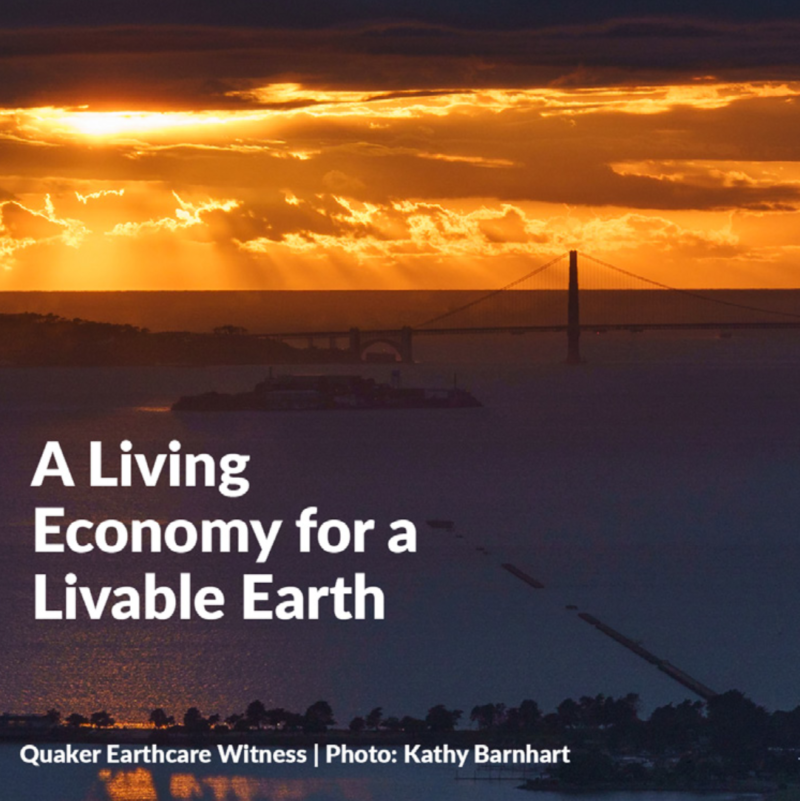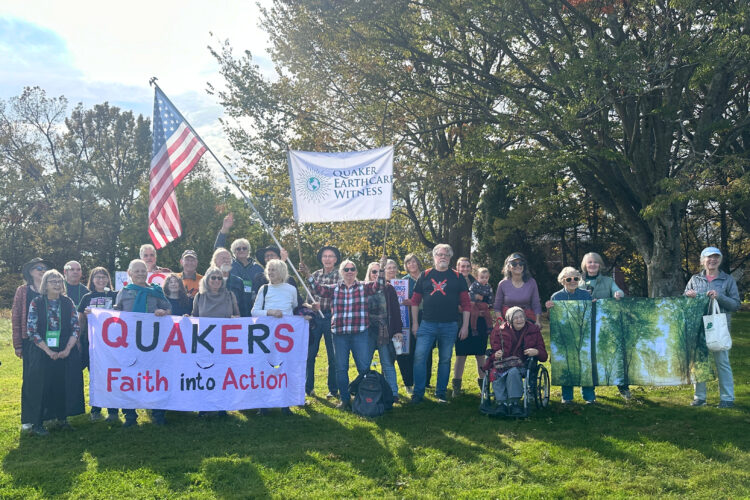A Living Economy for a Livable Earth

By Pamela Haines
Most of us are intimidated by economics, made to feel too ignorant to understand, question, or challenge its system. But, just as we do with peace, we can step boldly into that arena with our faith and values intact, daring to imagine a living economy for a livable world. Here are six big ideas that help capture the moral issues.
Center and measure what we value.
With Gross Domestic Product—the sum of all economic activity—we measure many things that don’t add to our well-being and don’t measure many things that do. For example, the economic activity of private prisons and predatory lenders are measured as positives. But many things are not measured. In agribusiness, for example, the pollution from farm machinery and transportation, pesticides and herbicides, and the damage to soil, small farms, farm workers and farming communities are all considered externalities, and left out of the balance sheet. And we don’t measure the work of caring at all.
Replace linear with circular models of production.
The linear “extract-produce-consume-discard-repeat” story may have seemed workable when our planet was lightly populated and the supply of natural resources and fossil fuel energy appeared endless, but it is not a match for a deeply interconnected web of life on a finite Spaceship Earth. As we align human systems with earth systems, we get to think instead about renewables, about waste from one process becoming a resource for the next, and about building reuse and repair into the design.
Reclaim the commons.
Colonialism and the settling of North America was the enclosure of indigenous commons on a global scale. Privatizing the commons for profit is now happening everywhere, in land, water, seeds, “intellectual property”, cyberspace, and DNA. We are transforming caring services into commodities, privatizing public water systems to make them more “efficient”, and buying and selling carbon emissions. We need to reclaim our commonwealth from the rules of private ownership, so we can manage it for the common good.
Make money a public utility.
Currently, less than 5% of our money is issued by the government in the form of bills and coins. Private for-profit banks create all the rest when they issue loans, and the need to pay back interest on those loans supports a need for growth. Since interest payments on bonds tend to double the costs of long-term projects, government spending directly into the economy to meet big public needs is better stewardship of our commonwealth. Municipal or state banks can also hold and invest public funds, keeping money at home. Guaranteed basic income, Post Office banking, and accounts at the country’s central bank could help individuals.
Move from individual to shared rights.
With our emphasis on individual and property rights, corporations, which exist to make a profit, have gradually amassed more legal rights than work- ers, communities, or the earth. If we shifted our allegiance to shared rights, we would prioritize human rights; citi- zens’ democratic rights; worker rights; community rights to decide about shared quality of life and stewardship of their local environments; and the rights of nature—other species, bodies of water, ecosystems—to exist and flourish.
Live within the “Doughnut”
If we imagine our economy as a doughnut, the safe space for life is within the doughnut itself. The hole is where we fall short of meeting human needs; the space beyond is where we overshoot the planet’s limits. This idea of Doughnut Economics, from British economist Kate Raworth, can help us see big climate and social/economic issues as interrelated, so as to work on both in a coherent way.
We are the ones we’ve been waiting for.
Economics, from its Greek roots, means “management of the home,” and we all can bring our intelligence, experience, and faith values into this arena. We can learn about hopeful new economic experiments. We can imagine. We can speak out and act for a livable future for us all.
Pamela Haines offers several QEW workshops, including “A Living Economy for a Livable Earth”. Learn more at Quakerearthcare.org/workshops.

